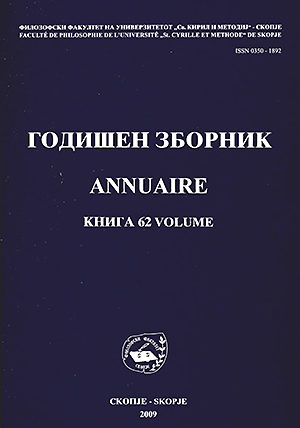REGIONAL COLLABORATION FOR SECURITY
DOI:
https://doi.org/10.37510/Keywords:
REGION, REGIONAL INSTITUTIONS, REGIONALISM, SECURITY, EURO-ATLANTIC COLLABORATIONAbstract
Regional security collaboration is not a transient phenomenon. It includes a vast majority of the countries in the world, although some of them are in this group deeper, more sincere and more voluntarily than are others. Despite its developing forms for vast coverage of the contemporary security specter, the observers are questioning if the undertaken activities result in increased safety for the countries and peoples. From a historical point of view, a firm proof exists, proving that many of these organizations have contributed in preventing and resolving conflicts in and between countries. However, they show certain disadvantages, such as the negligent way of making decisions, usually based on consensus, Thus, regional security collaboration can not fully replace national action or decisions made by the Council of security of the UN, but solely complement them. Cooperative regional approaches have explicit advantages, dealing with priorities, such as long-term peace building, promoting democracy and human rights and other international security challenges. When risks appear in an incontrollable way, for instance, the local conflicts, local response capacities enable the UN be focused where most needed, equalizing security standards in the long-term.
In the case of international threats, organized regions are able to maximally put in function their own defense capacities, including the legitimacy for military force intervention. The pressure for global security cooperation is even more amplified due to new security threats, such as terrorism, (mass destruction weapons trade) the trade with weapons for mass destruction, and other challenges. The perspectives of the regional security collaboration are utterly complicated, above all because of the cultural and legal differences between actors, who in reality face the biggest mutual challenge - creating a stable and secure region.
Downloads
Published
Issue
Section
License
Copyright (c) 2009 Zorica Saltirovska

This work is licensed under a Creative Commons Attribution 4.0 International License.





